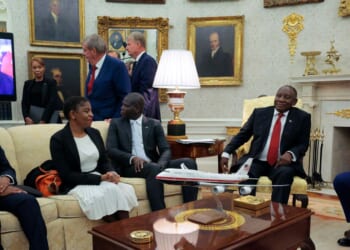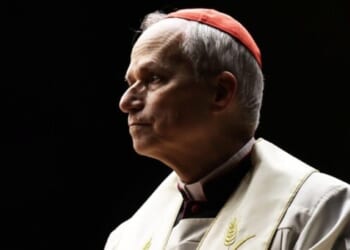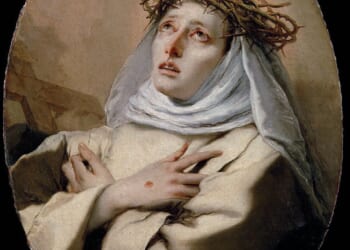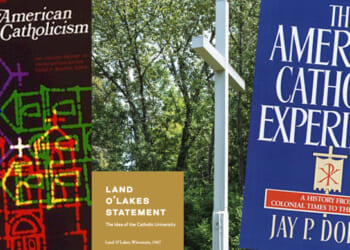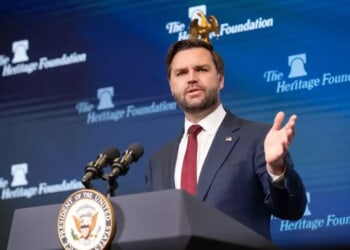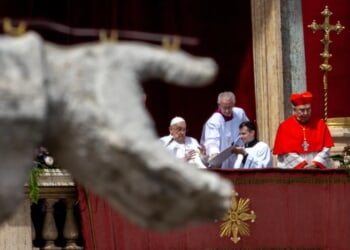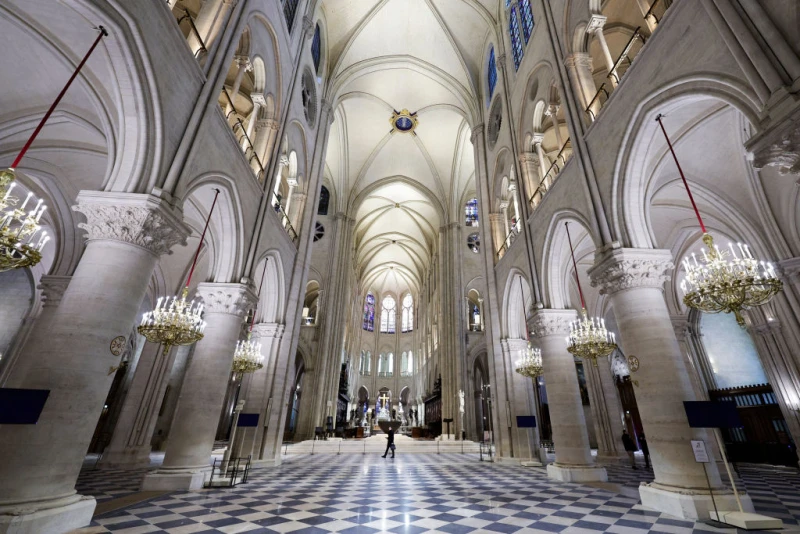
Paris, France, May 25, 2025 / 07:00 am (CNA).
The 16th annual Vigil for Life was held in the newly restored Notre-Dame Cathedral in Paris on the evening of May 21 as the French Parliament continues to debate legislation that would legalize assisted suicide and euthanasia.
Organized by the bishops of the Île-de-France region, the vigil has taken place annually since 2009. The 2025 edition, which gathered approximately 2,000 faithful, centered on the theme “Builders of Love, Let Us Live in Hope!”
The 2024 edition, also marked by the national conversation on end-of-life issues, carried the theme “When I Am Weak, Then I Am Strong” (2 Cor 12:10).
This year’s gathering featured a series of testimonies from individuals with diverse personal and professional backgrounds, offering reflections on the ethical and human dimensions of end-of-life care and the responsibilities society bears toward the most vulnerable.
The French Church hierarchy has expressed deep concern over the legislative developments, describing them as a potential “anthropological rupture” that threatens the inherent dignity of human life, from conception to natural death.
The bill on end-of-life, currently under parliamentary review, introduces the concept of “assistance in dying,” a term meant to encompass both euthanasia — where a third party directly administers the lethal substance — and assisted suicide, in which the patient takes the final act.
Adults suffering from a serious, incurable condition causing physical or psychological suffering deemed unbearable would be eligible, subject to medical evaluation. A formal vote on the bill is scheduled for May 27.
Meanwhile, members of Parliament also approved on May 24 the creation of a new offense for hindering access to assisted dying. Such an offense would criminalize any attempt to prevent either the act itself or access to information about it. The provision was modeled on the existing offense of obstructing access to abortion in the country.
Critics of the bill, including Catholic leaders and bioethicists, argue that the vague terminology — particularly surrounding the assessment of “unbearable suffering” — poses serious risks to the value placed on life. They warn that the law could pave the way toward the normalization of assisted death as a standard response to illness or vulnerability.
“If adopted on May 27, this text, among the most permissive in the world, would threaten the most fragile and call into question the respect due to all human life,” the French Bishops’ Conference warned in a statement published last week.
Archbishop Vincent Jordy of Tours, the vice president of the bishops’ conference, described the proposal as a “distortion of fraternity” and called for support for palliative care as the ethical and humane alternative.
During the vigil in Notre-Dame, Auxiliary Bishop Emmanuel Tois of Paris also urged Catholics not only to pray but also to take concrete action: “There are many ways and places where Christians can become more engaged,” he said, encouraging the faithful to write to their lawmakers and engage in dialogue with those around them.
In his homily, Archbishop Laurent Ulrich of Paris denounced the “illusion” of a “soft, chosen death.”
“It is by twisting the meaning of words that we want people to accept this perspective,” he continued. “To call natural death that which results from the voluntary act that provokes it.”
“Calling the gesture that kills or the word that leads to it fraternal help. Invoke a right to die when death is an inescapable fact. … To add an offense of obstruction to this right to die; while for decades and still today we have been multiplying driving regulations to avoid fatal accidents on the road, or to protect our brothers and sisters from desperate and suicidal gestures.”
During the celebration, prayer intentions were placed before the altar, and the liturgy included readings and hymns reflecting the Church’s commitment to defending life. The Eucharistic Prayer for Special Circumstances provided a spiritual focus.
“Open our eyes to all distress, inspire us with the right word and deed to support our neighbor in sorrow or trial; grant us to serve him with a sincere heart according to the example and words of Christ himself,” the prayer says.
“Make your Church a place of truth and freedom, of justice and peace, so that all humanity may be reborn to hope.
If you value the news and views Catholic World Report provides, please consider donating to support our efforts. Your contribution will help us continue to make CWR available to all readers worldwide for free, without a subscription. Thank you for your generosity!
Click here for more information on donating to CWR. Click here to sign up for our newsletter.


